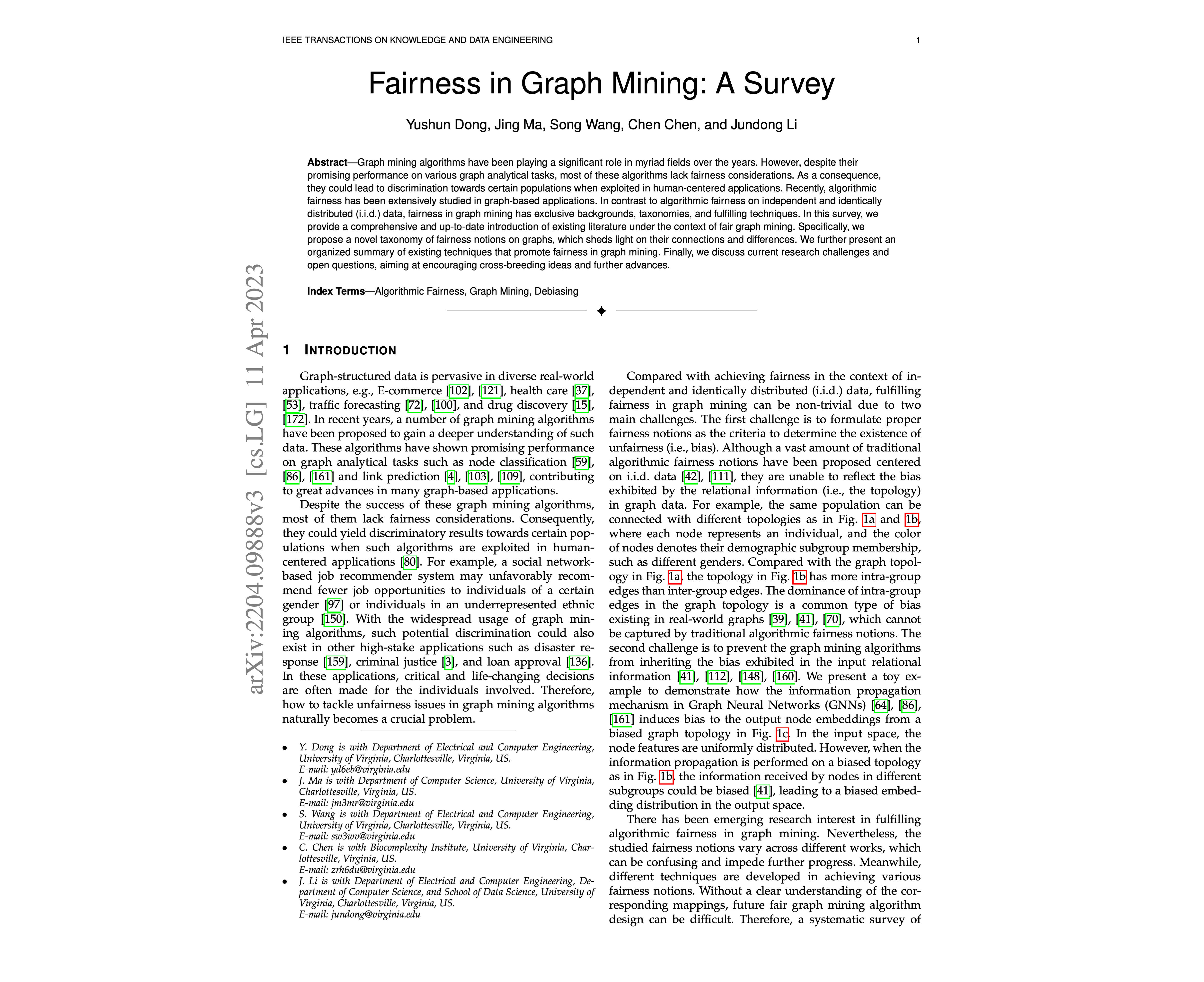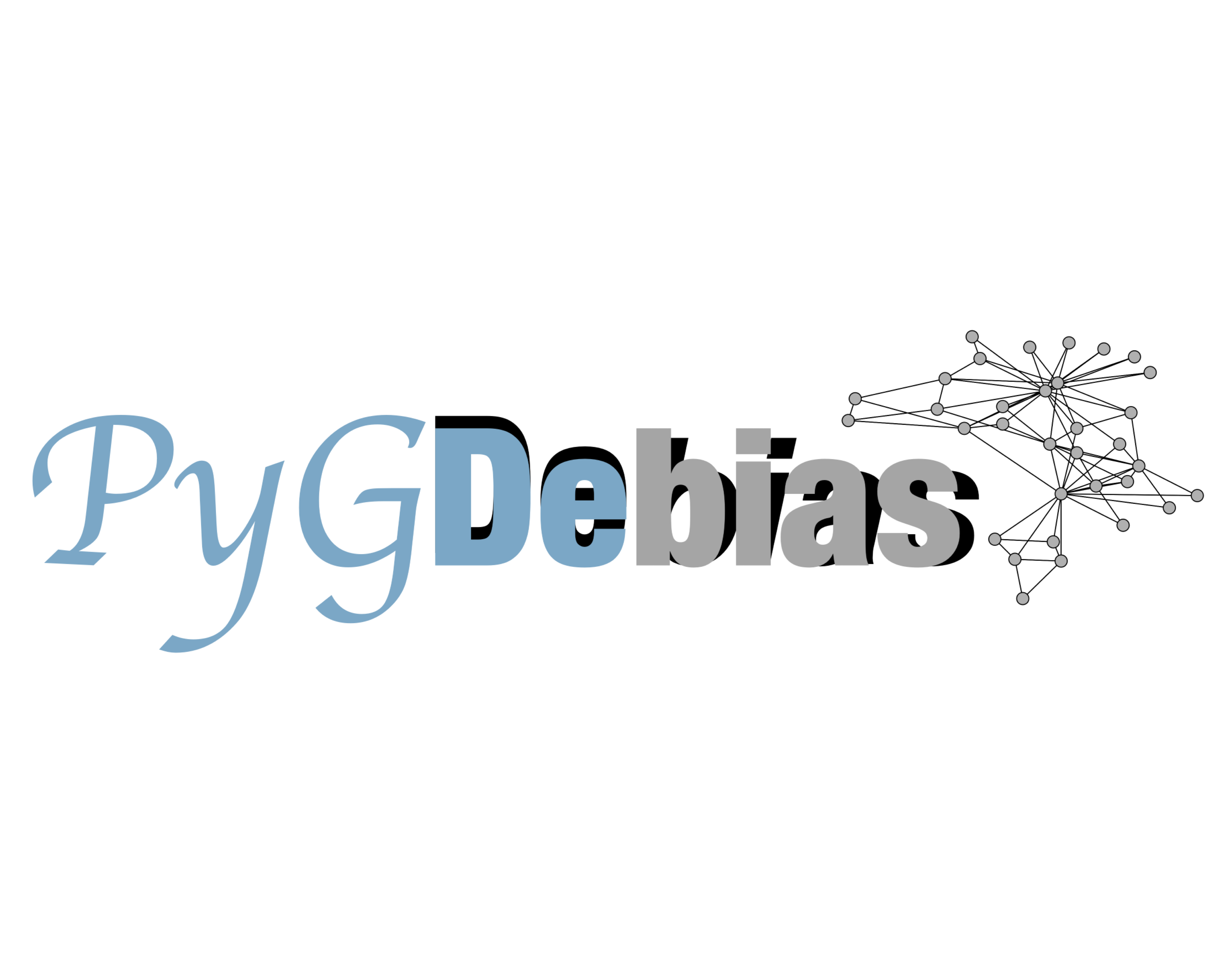Related Materials

Fairness in graph mining: A survey
Authors: Yushun Dong, Jing Ma, Chen Chen, and Jundong Li. Accepted by TKDE.
- Novel Fairness Taxonomy. We propose a novel taxonomy of fairness notions in graph mining, including five groups of fairness notions.
- Comprehensive Technique Review. We provide a comprehensive and organized review of six groups of techniques that are commonly utilized to promote fair- ness in graph mining algorithms.
- Rich Public-Available Resources. We collect rich resources of algorithms and benchmark datasets that can be employed for fair graph mining research.
- Challenges and Future Directions. We present the limitations of current research and point out pressing challenges. Paper

PyGDebias: A library of Fairness-Aware Graph Mining Algorithms
Authors & Acknowledgements: Yushun Dong, Song Wang, Zaiyi Zheng, Zhenyu Lei, Alex Jing Huang, Jing Ma, Chen Chen, Jundong Li.
- We developed this library PyGDebias featured for built-in datasets and implementations of popular fairness-aware graph mining algorithms for the study of algorithmic fairness on graphs.
- 26 graph datasets (including 24 commonly used ones and two newly constructed ones) are collected, and 13 algorithms are implemented in this library. GitHub



